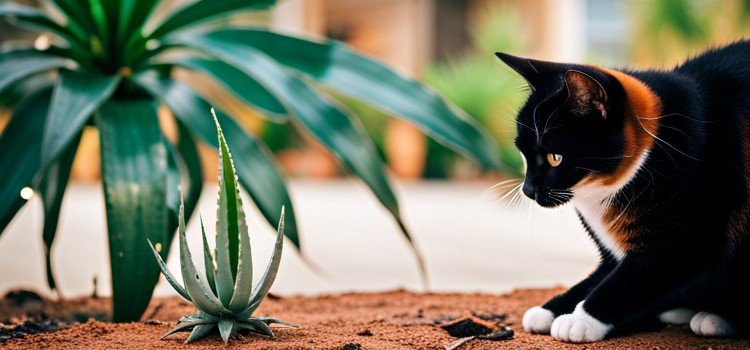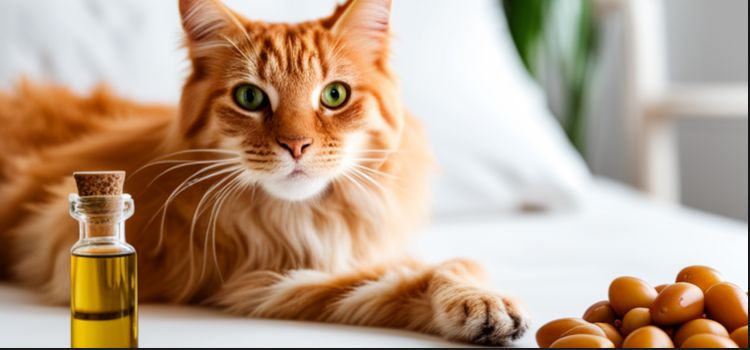As an Amazon Associate committed to the mission of improving the lives of our readers, Live-Clear.com receives a small commission from eligible purchases made through our affiliate links. This revenue enables us to keep producing insightful articles and other material.
Witch Hazel is not toxic to cats and is safe for use on their skin and fur. It can be beneficial for treating various skin conditions in cats.
Witch Hazel is a natural astringent that helps soothe itchiness, reduce inflammation, and disinfect wounds. However, it’s important to use pure witch hazel without any added ingredients, as some products might contain substances, such as alcohol, which can be harmful to cats.
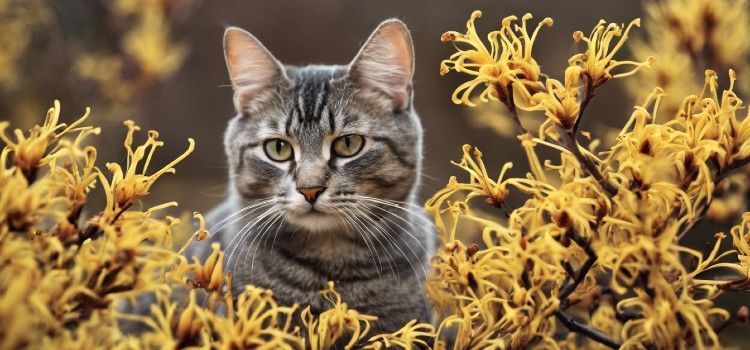
Always consult with a veterinarian before using any new product on your cat to ensure their safety and well-being.
Is Witch Hazel Toxic to Cats?
Witch hazel, a natural astringent, has gained popularity for its various uses. But what about its safety for our feline friends? Let’s separate myth from reality when it comes to witch hazel and cats.
| Components | Safety for Cats |
|---|---|
| Distilled witch hazel | Generally safe. It contains tannins that act as natural astringents, reducing inflammation and promoting healing. However, avoid any product with added essential oils or alcohol, as they can be toxic to cats. |
| Witch hazel products | Depends on the product. While pure, unscented, and alcohol-free witch hazel may be safe in moderation, always consult your veterinarian before using any product on your cat. |
Remember, cats are sensitive creatures to many substances, so it’s crucial to err on the side of caution. Keep an eye out for any signs of adverse reactions and seek immediate veterinary advice if needed.
Identifying If Witch Hazel Is Toxic To Cats
Witch Hazel is generally considered safe for cats, but it’s crucial to be aware of any potential toxins. The active compounds found in Witch Hazel, including tannins and essential oils, can have varying effects on cats.
Tannins, a class of astringent compounds, can cause mild gastrointestinal upset and stomach irritation in cats if ingested in large quantities. However, the levels present in Witch Hazel are generally low, so the likelihood of toxicity is low as well.
As for essential oils, Witch Hazel contains only trace amounts, and these are not known to be harmful to cats. In fact, Witch Hazel is commonly used in some pet grooming products, demonstrating its safety for feline use.
When comparing Witch Hazel with known toxic substances for cats, such as essential oils like tea tree or certain cleaning agents, Witch Hazel is considered significantly less dangerous. Nonetheless, it’s important to always consult your veterinarian before using any new product on your cat, especially if they have pre-existing health conditions or allergies.
Understanding Feline Physiology
Cats have unique metabolic pathways that make them more sensitive to certain substances compared to other animals. Their livers contain lower levels of specific enzymes, such as glucuronyl transferase, which are responsible for metabolizing toxins.
Due to these unique metabolic pathways, cats are more prone to the toxic effects of certain plants. When ingested, some plants can cause gastrointestinal upset, organ damage, or even be fatal to our feline friends.
Witch Hazel (Hamamelis spp.) contains tannins, which can be toxic to cats. When ingested, it may cause symptoms such as vomiting, diarrhea, and skin irritation. While this natural remedy is generally safe for humans, it’s best to keep it away from curious cats.
To ensure the safety of our feline companions, it’s important to familiarize ourselves with the plants that may pose a threat to them. If you suspect your cat has ingested a toxic plant or is exhibiting any unusual symptoms, it’s crucial to seek immediate veterinary care.
In conclusion, while Witch Hazel may have beneficial properties for humans, it is best to err on the side of caution when it comes to our cats’ health and avoid exposing them to this potentially harmful plant.
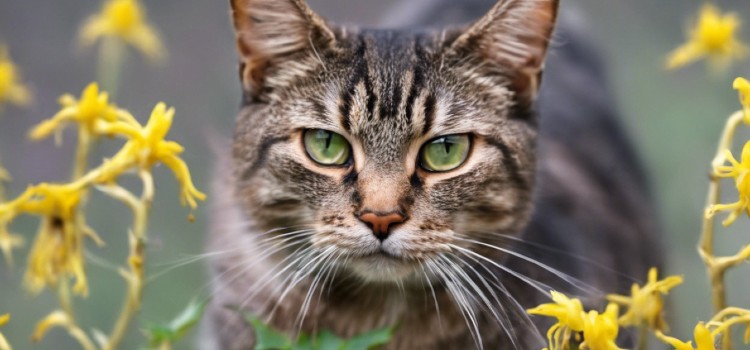
Cat Reactions To Witch Hazel
Cats can have reactions to witch hazel, which can potentially be toxic to them. Signs and symptoms of toxicity can vary and may include skin irritation, redness, swelling, and itching if applied topically. If ingested, cats may experience digestive upset such as vomiting and diarrhea. It is important to note that some products containing witch hazel may also contain other ingredients that could be harmful to cats.
It is essential to differentiate between short-term and long-term exposure to witch hazel. Short-term exposure can result in immediate reactions, whereas long-term exposure may lead to accumulation of certain substances that could be more harmful over time. If your cat shows any signs of toxicity after being exposed to witch hazel, it is crucial to contact your veterinarian immediately for guidance and appropriate treatment.
Common Uses Of Witch Hazel
Witch Hazel, also known as Hamamelis virginiana, derives from the leaves, bark, and twigs of the Witch Hazel plant, serving as a natural botanical extract. This versatile plant boasts a rich history of human medicine and skincare applications. Thanks to its anti-inflammatory and astringent properties, people commonly use it to address various skin conditions like acne, inflammation, and insect bites. Moreover, products like facial toners, cleansers, and aftershaves frequently include Witch Hazel due to its capability to tighten the skin and reduce the appearance of pores. However, pet owners should exercise caution when considering the safety of using Witch Hazel on cats. Although it is generally deemed safe for topical use on cats, ingestion can lead to gastrointestinal upset. Hence, it is advisable to consult with a veterinarian before introducing Witch Hazel or any new product to your feline friend.
In human medicine and skincare, Witch Hazel has gained popularity for its ability to reduce pain and inflammation, treat minor skin irritations, and promote wound healing. Its astringent properties make it effective in reducing swelling and tightening tissues. In skincare, Witch Hazel is used as a natural toner, cleanser, and makeup remover. It helps balance the skin’s pH levels, control excess oil production, and soothe irritated skin. The appeal for pet-related applications of Witch Hazel stems from its potential to provide relief for various skin conditions in cats. However, it is essential to remember that cats may have different sensitivities and reactions to substances compared to humans. Therefore, it is vital to consult a veterinarian before using Witch Hazel on your furry companion to ensure their safety and wellbeing.
Assessing Witch Hazel Products
Witch hazel possesses popular natural remedies known for its soothing and healing properties. However, as cat owners, it’s important to be aware of the potential risks associated with using witch hazel products around our feline friends.
When it comes to assessing witch hazel products, it’s crucial to consider the varieties available in the market. There are different types of witch hazel, including the most common ones: Hamamelis virginiana and Hamamelis mollis. Both varieties contain tannins, which give witch hazel its astringent properties. While considering the distilled Hamamelis virginiana extract as safe for cats, it’s crucial to avoid using any products that contain additional ingredients.
Some witch hazel products may contain alcohol or other ingredients that can be potentially toxic to cats. These additional ingredients can cause skin irritation or allergic reactions when in direct contact with the cat’s skin. Ensure your cat’s safety by carefully reading the labels and selecting witch hazel products specifically formulated for pets or containing solely natural, cat-safe ingredients.
In summary, although witch hazel itself is generally safe for cats, it’s crucial to assess the products available in the market and avoid those that contain potentially harmful additional ingredients.
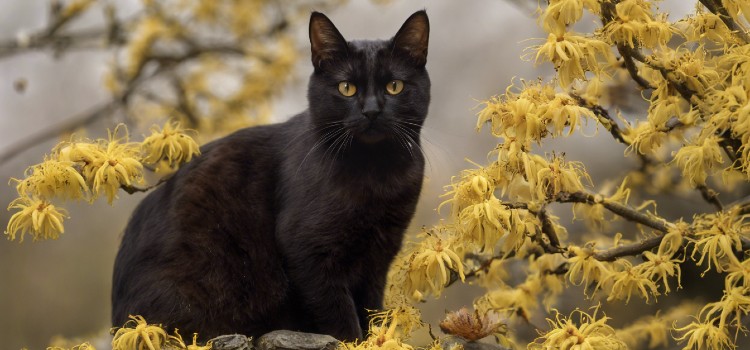
Safe Alternatives To Witch Hazel
Witch hazel, when used properly and in small quantities, is generally considered safe for cats. However, it is important to note that some cats may be sensitive or have allergic reactions to witch hazel. It is always best to consult with a veterinarian before using any new products on your cat.
If you seek safe alternatives to witch hazel, explore several natural remedies known to be safe for cats. Some options include:
| Aloe vera gel: | Gently soothes and moisturizes the skin. |
| Chamomile tea: | Can be used as a natural cleanser and can help soothe irritated skin. |
| Coconut oil: | Provides moisture and can have antibacterial properties. |
| Calendula cream: | Offers anti-inflammatory and healing properties. |
It is important to note that while these remedies are generally safe for cats, it is still best to consult with a veterinarian before using them. They can provide guidance based on your cat’s specific needs and any existing health conditions.
Steps After Witch Hazel Exposure
In case you suspect your cat has been exposed to witch hazel, it is important to take immediate action to ensure their well-being. Begin by removing any remaining witch hazel from their fur or skin using a damp cloth or paper towel. Gently dab the affected area to remove as much of the substance as possible without causing further irritation. It is crucial not to use any harsh chemicals or solvents for cleaning, as they can worsen the situation. Monitor your cat closely for any signs of discomfort, such as excessive scratching, licking, or irritation of the skin. Should any concerning symptoms arise, contact your veterinarian immediately for further guidance.
As for the long-term health considerations following witch hazel exposure, observe your cat over the coming days for any changes in behavior, appetite, or overall well-being. If your furry companion experiences persistent or worsening symptoms, it is advisable to seek veterinary assistance promptly. Remember to keep witch hazel and other potentially harmful substances securely stored in a location inaccessible to your cat, to ensure their safety.
Conclusion
In conclusion, the query “Is Witch Hazel Toxic to Cats?” highlights the importance of pet safety and awareness. While witch hazel is generally considered safe for humans, carefully examine its impact on feline companions. Pet owners must exercise caution and seek guidance from their veterinarian before using any products containing witch hazel around cats. Understanding potential risks and taking proactive measures are crucial in ensuring a safe environment for your beloved feline friends. Stay informed, prioritize your cat’s well-being, and consult your vet for personalized advice on maintaining a hazard-free home for your furry companions. Explore cat safety and household products to make informed decisions for a happy and healthy cat.
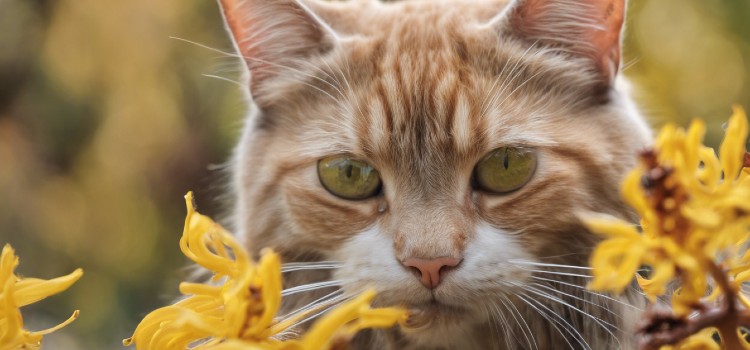
Frequently Asked Questions Of Is Witch Hazel Toxic To Cats
Yes, you can use witch hazel on cat acne. Witch hazel has natural astringent properties that can help reduce inflammation and promote healing. However, it is important to dilute it with water before applying to your cat’s acne and to consult with your veterinarian before trying any new treatments.
Yes, witch hazel is safe for cleaning cats’ ears.
Yes, cats can be around witch hazel. It is safe and non-toxic for cats when used externally.
No, the witch hazel plant is not poisonous to animals.
In summary, the question “Is Witch Hazel Toxic to Cats” underscores the need for vigilant pet care. Witch hazel commonly finds use in various contexts, but pet owners must consider its safety for feline friends. Pet owners should stay well-informed about potential risks and consult their veterinarian for personalized advice. Prioritizing cat safety involves careful scrutiny of household products, including those containing witch hazel. Stay proactive in creating a cat-friendly environment by understanding the potential effects of substances on your furry companions. For a comprehensive guide on cat safety and toxin awareness, explore our resources and empower yourself to make informed decisions for the well-being of your cherished feline friends.
Amazon and the Amazon logo are trademarks of Amazon.com, Inc, or its affiliates.
